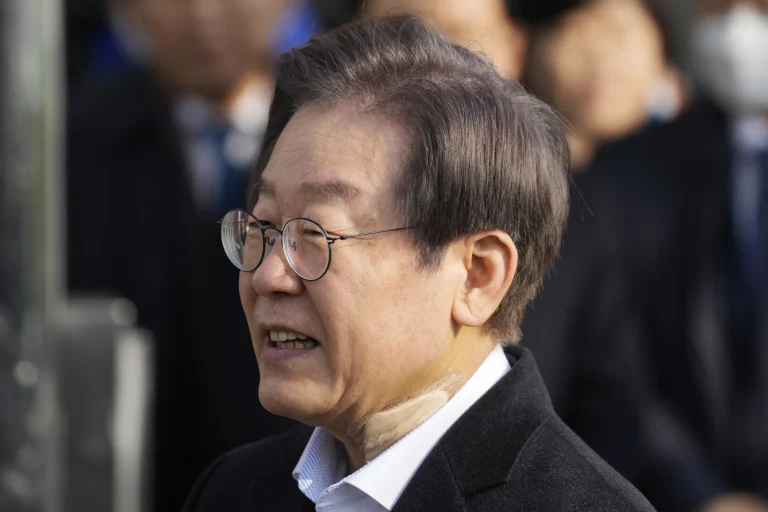In Seoul, South Korea, a significant legal decision was reached on Friday as a man received a 15-year prison sentence for stabbing the country’s opposition leader earlier this year. Lee Jae-myung, the head of South Korea’s largest political party, the liberal Democratic Party, was attacked in January during a public event in Busan. The assailant, armed with a knife, approached Lee under the guise of seeking an autograph before launching his assault. Following his apprehension by law enforcement, he confessed to authorities his intent to prevent Lee from ascending to the presidency.
The Busan District Court, after a thorough trial process, convicted the perpetrator of attempted murder and violating election laws, resulting in the lengthy prison term. Both the defendant and prosecutors have been given one week to consider appealing the decision.
The assault occurred amidst the backdrop of South Korea’s crucial parliamentary elections in April, which saw Lee’s Democratic Party and other opposition factions achieve a resounding victory over President Yoon Suk Yeol’s conservative ruling party. The court’s verdict characterized the attack as a severe challenge to the nation’s electoral integrity, stating that it undermined foundational democratic principles and eroded societal trust, as reported by Yonhap news agency. According to court documents, the assailant harbored deep-seated animosity towards Lee due to political disagreements, even practicing the act of stabbing in preparation for the attack, and had tracked Lee’s movements across multiple public events.
Details from the court’s public affairs office regarding the specifics of Friday’s ruling were not immediately available, and the identity of the perpetrator remains undisclosed, although police previously disclosed he is approximately 67 years old. The stabbing left Lee critically injured, requiring extensive medical treatment and an eight-day hospitalization. Upon his release from a Seoul hospital later in January, Lee emphasized his desire to transcend the divisive politics that have characterized South Korean society.
During interrogations, the assailant expressed dissatisfaction with perceived delays in investigations into corruption allegations against Lee by authorities. He admitted to targeting Lee in an effort to undermine his party’s electoral prospects and to thwart his potential future presidency, according to law enforcement sources. Reports confirmed that the attacker had recently joined the Democratic Party, although the ruling People Power Party clarified he was not currently affiliated with them, despite previous ties under a different organizational name.
Lee, known for his outspoken nature and having narrowly lost the 2022 presidential race to Yoon, a former chief prosecutor, continues to be a prominent figure in South Korean politics. The rivalry between Lee and Yoon, exacerbated by the contentious presidential election and subsequent political disputes, has deepened the country’s ideological divisions. Early polling suggests Lee remains a frontrunner for the 2027 presidential election, whereas Yoon is legally prohibited from seeking re-election.
In conclusion, the sentencing of the assailant marks a pivotal moment in South Korea’s political and judicial landscape, underscoring the gravity of political violence and its repercussions on democratic institutions. As the nation prepares for future elections, the aftermath of this attack serves as a stark reminder of the challenges faced in maintaining electoral integrity and societal cohesion in a polarized political climate.

